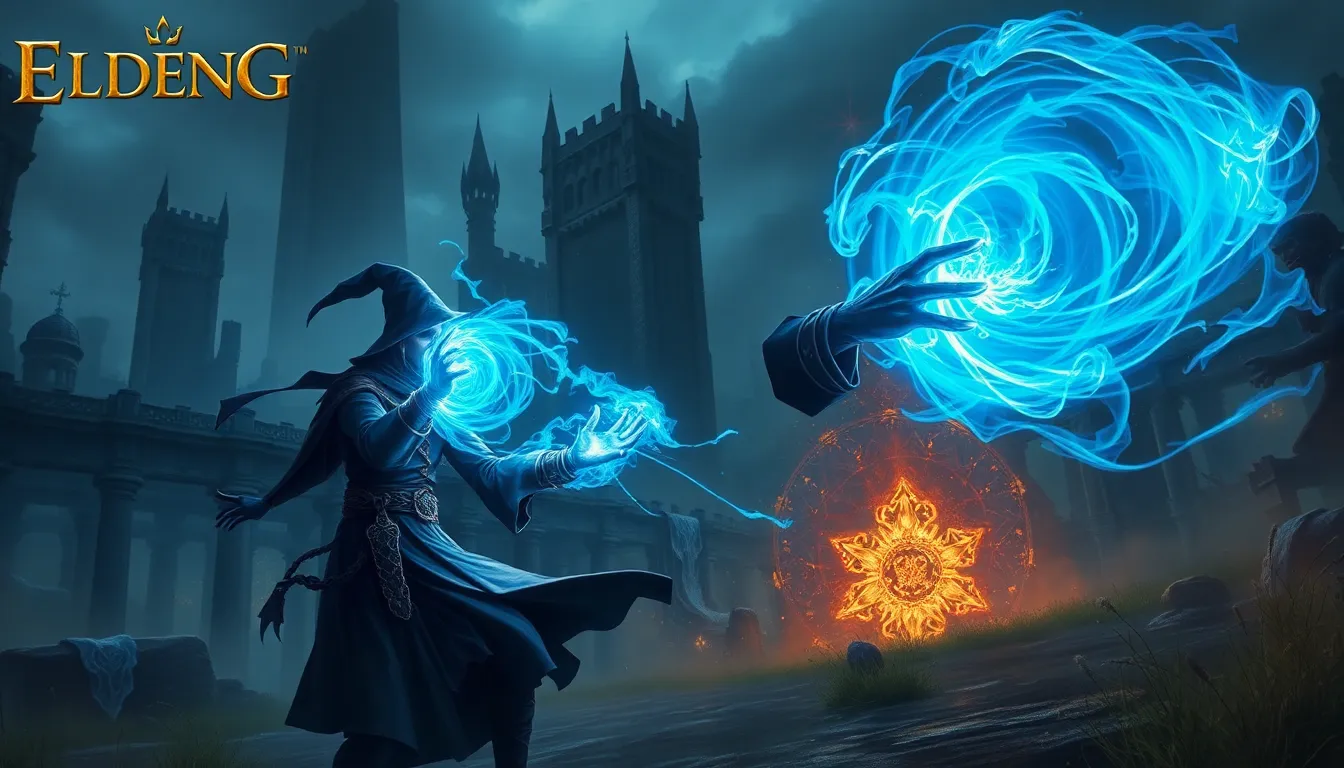In the vast and intricate world of Elden Ring, magic serves as a powerful tool that can turn the tide of battle and shape the player’s journey. From devastating spells that obliterate foes to subtle enchantments that enhance abilities, the game offers a rich tapestry of magical options, inviting players to explore and experiment.
As adventurers traverse the Lands Between, they’ll discover various schools of magic, each with unique characteristics and strategic applications. Whether it’s casting sorceries or wielding incantations, mastering these mystical arts is essential for anyone looking to conquer the challenges that lie ahead. Understanding the nuances of Elden Ring magic not only enriches gameplay but also deepens the lore and experience of this captivating universe.
Table of Contents
ToggleOverview of Elden Ring Magic
Elden Ring features a diverse array of magical systems that enhance gameplay and offer strategic benefits. Players can choose from two primary schools of magic: sorceries and incantations.
- Sorceries: These magic spells, often associated with intelligence, focus on raw power and ranged attacks. Sorceries include offensive projectiles like Glintstone Pebble and powerful area-effect spells like Comet Azur. Mastery of sorcery provides players with high damage potential from a distance.
- Incantations: These spells draw on faith and provide versatility. Incantations cover healing, buffing, and elemental attacks. Players might use spells like Flame, Grant Me Strength for attack boosts or Golden Vow for defense. Understanding incantations allows for dynamic combat strategies and adaptations against varying enemies.
Magic in Elden Ring also interacts with the Strength and Dexterity attributes, allowing players to build unique characters around their preferred style of play. Equipping seals and staves intelligently boosts spell effectiveness.
Experimenting with different combinations of spells further enriches the combat experience. Players can employ sorceries and incantations in conjunction, maximizing their tactical approach based on enemy encounters. The learning curve associated with mastering these spells reflects the intricate design of Elden Ring’s magical system and adds depth to the overall gaming experience.
Types of Magic in Elden Ring

Elden Ring features two primary types of magic: sorceries and incantations. Each type offers unique spells and abilities, allowing players to tailor their magical experiences.
Sorceries
Sorceries utilize intelligence as the primary attribute, focusing on offensive capabilities. Players can cast powerful spells from a distance, inflicting significant damage on foes. Key sorceries include:
- Glintstone Pebble: A reliable projectile attack that deals magic damage.
- Comet Azur: A devastating spell that unleashes a massive beam of energy, ideal for boss encounters.
- Crystal Barrage: Launches multiple crystal projectiles, effective for crowd control.
Sorceries provide adaptability in combat, emphasizing strategic positioning and timing.
Incantations
Incantations depend on faith, offering a mix of offensive and support spells. This type of magic includes healing, buffs, and elemental attacks. Notable incantations are:
- Flame, Grant Me Strength: Boosts physical and fire-based damage for enhanced combat effectiveness.
- Golden Vow: Increases attack and defense for self and allies, proving invaluable in multiplayer scenarios.
- Black Flame: Inflicts continuous damage over time, targeting both health and stamina.
Incantations promote versatility, enabling players to craft hybrid builds that support both offensive and defensive strategies.
How to Acquire Magic
Acquiring magic in Elden Ring involves searching for spells and enhancing magic skills through strategic gameplay. Players can find a variety of spells to suit their combat styles and preferences.
Finding Magic Spells
Players can discover magic spells scattered across the Lands Between. Locations include:
- Towers: Many spells, especially sorceries, reside in tower interiors or on their rooftops.
- Caves: Hidden within caves, players can find spells often guarded by powerful enemies.
- NPCs: Some non-playable characters (NPCs) sell spells, providing opportunities for players who interact and complete quests.
Examples of spells include Glintstone Pebble from the Roger’s questline and Flame, Grant Me Strength obtainable from a merchant in Caelid.
Leveling Up Magic Skills
Enhancing magic skills requires strategic investment in attributes. Key points include:
- Intelligence: For sorceries, invest in Intelligence to augment damage and spell effectiveness.
- Faith: For incantations, level up Faith to improve spell potency and unlock powerful incantations.
- Talismans: Equip talismans that boost spellcasting abilities or increase damage output for specific magic types.
Players may also seek out trainers to learn advanced spells, providing further customization and tactical advantages in combat.
The Role of Magic in Gameplay
Magic plays a crucial role in gameplay, enhancing combat strategies and allowing for diverse character builds. In Elden Ring, players utilize magic to adapt to various challenges and elevate their performance in battles.
Combat Strategies with Magic
Combining spells with melee attacks forms effective combat strategies. Players can maintain distance while launching spells like Comet Azur or Crystal Barrage, managing the battlefield dynamically. Utilizing Glintstone Pebble provides a steady damage output, while spellcasting from cover or high ground increases survivability. Incorporating incantations, such as Flame, Grant Me Strength, and Golden Vow, enhances offensive and defensive capabilities, allowing for additional buffs and healing. Experimenting with different spell combinations provides flexibility, enabling players to tailor their approach based on enemy types and attack patterns.
Magic vs. Physical Builds
Magic builds differ strategically from physical builds, emphasizing spellcasting over melee weapon proficiency. While physical builds prioritize attributes like Strength and Dexterity for brute force, magic builds focus on Intelligence and Faith. This distinction encourages players to pursue hybrid setups, mixing melee and magic for optimized performance. Players skilled in magic can exploit elemental weaknesses and apply status effects to hinder foes. It’s essential for players to balance attributes and equipment, ensuring magic users maintain adequate defense and stamina to withstand attacks while casting spells.
Magic in Elden Ring is more than just a gameplay mechanic; it’s a vital element that enriches the entire experience. Players who embrace the diverse schools of sorceries and incantations unlock a world of strategic possibilities. Mastering these spells not only enhances combat effectiveness but also deepens the connection to the game’s intricate lore.
Experimenting with different spells and character builds allows for unique approaches to challenges. Whether focusing on raw power or blending offensive and defensive tactics, magic offers players the versatility needed to adapt to any encounter. As they explore the vast landscapes of Elden Ring, players are encouraged to delve into the magical arts, enhancing their journey through this captivating realm.









